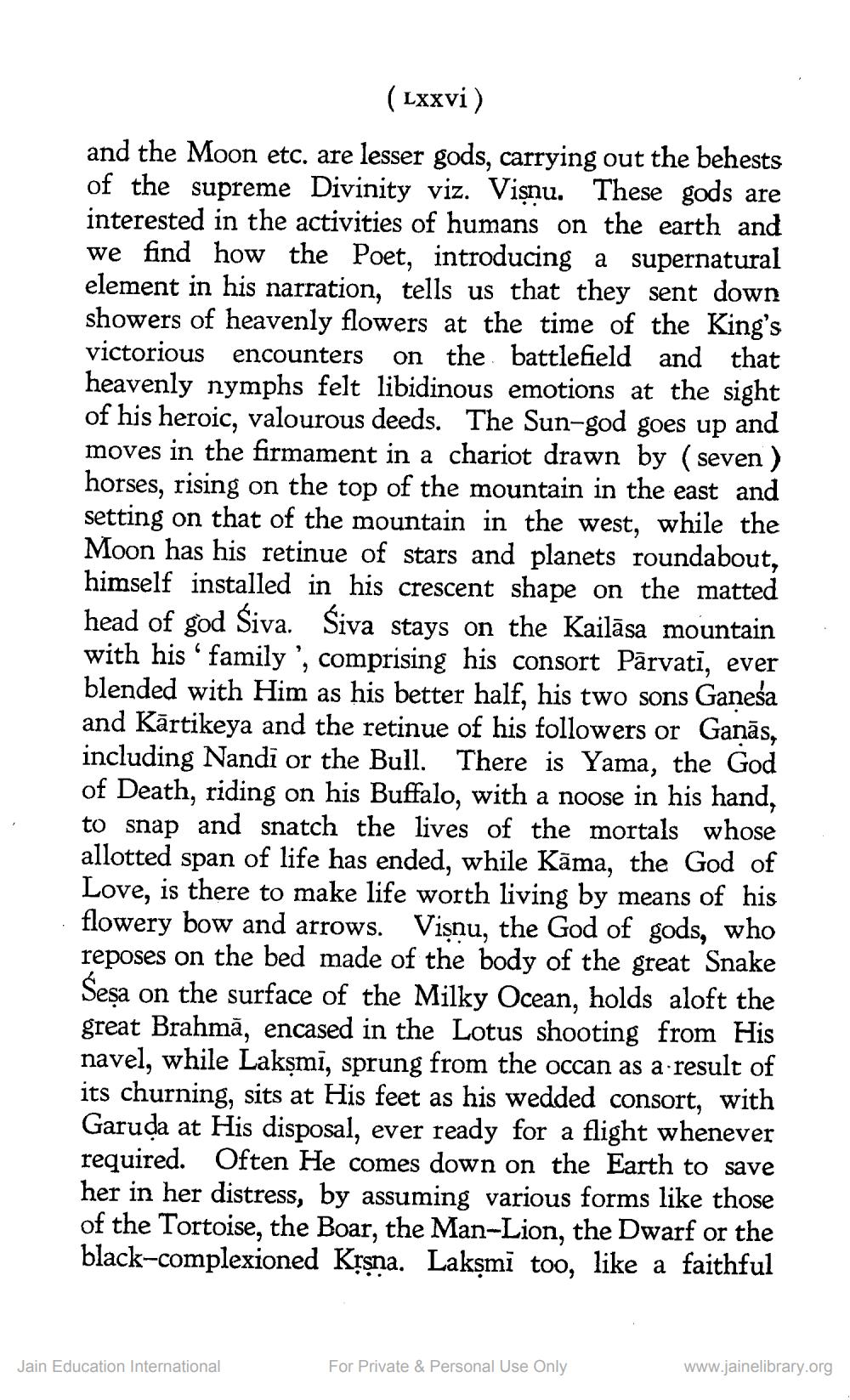________________
(Lxxvi)
and the Moon etc. are lesser gods, carrying out the behests of the supreme Divinity viz. Vişnu. These gods are interested in the activities of humans on the earth and we find how the Poet, introducing a supernatural element in his narration, tells us that they sent down showers of heavenly flowers at the time of the King's victorious encounters on the battlefield and that heavenly nymphs felt libidinous emotions at the sight of his heroic, valourous deeds. The Sun-god goes up and moves in the firmament in a chariot drawn by (seven ) horses, rising on the top of the mountain in the east and setting on that of the mountain in the west, while the Moon has his retinue of stars and planets roundabout, himself installed in his crescent shape on the matted head of god Śiva. Śiva stays on the Kailāsa mountain with his family ', comprising his consort Pārvatī, ever blended with Him as his better half, his two sons Ganesa and Kārtikeya and the retinue of his followers or Ganās, including Nandi or the Bull. There is Yama, the God of Death, riding on his Buffalo, with a noose in his hand, to snap and snatch the lives of the mortals whose allotted span of life has ended, while Kāma, the God of Love, is there to make life worth living by means of his flowery bow and arrows. Vişnu, the God of gods, who reposes on the bed made of the body of the great Snake Sesa on the surface of the Milky Ocean, holds aloft the great Brahmā, encased in the Lotus shooting from His navel, while Laksmi, sprung from the occan as a result of its churning, sits at His feet as his wedded consort, with Garuda at His disposal, ever ready for a flight whenever required. Often He comes down on the Earth to save her in her distress, by assuming various forms like those of the Tortoise, the Boar, the Man-Lion, the Dwarf or the black-complexioned Krsna. Lakşmi too, like a faithful
Jain Education International
For Private & Personal Use Only
www.jainelibrary.org




